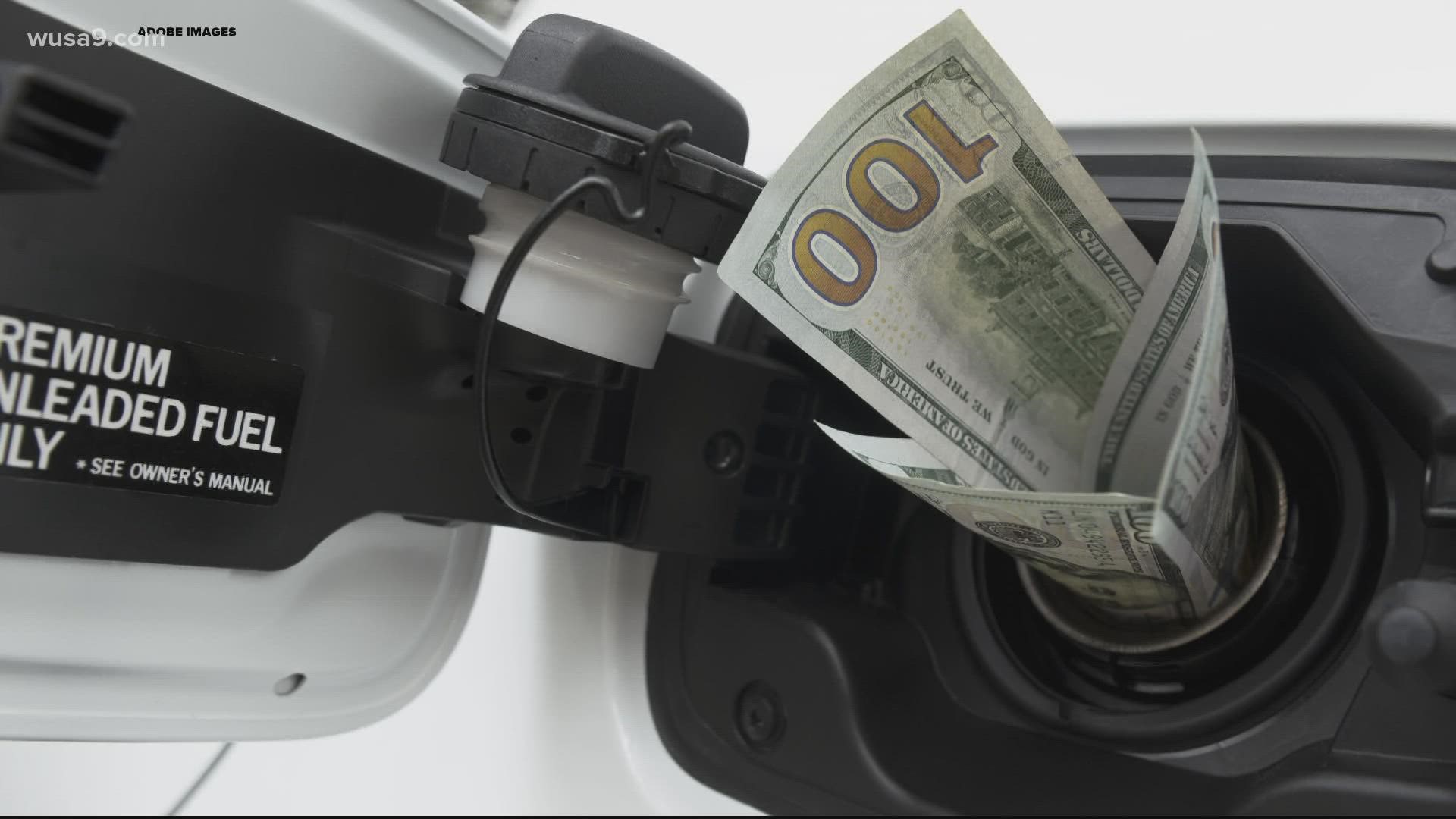WASHINGTON — Every morning we wake up to gas prices hovering at record numbers.
It’s led some politicians to float the idea of granting a gas tax holiday to try to lower prices.
How would that work?
Our experts and research show that each day at the pump you pay a state and federal gas tax. While gas tax holidays are championed to lower the burden of gasoline costs, those same experts said the relief would be short-term and quite possibly difficult to notice.
THE QUESTION
What are the gas taxes in our area?
OUR SOURCES
THE ANSWER
Everyone pays a federal gas tax and then a state gas tax is tacked on as well. On average, federal and state gas taxes are about 57¢ٔ a gallon.
WHAT WE FOUND
Our experts said gas taxes account for about 1/8 of the cost of a gallon of gas. It’s made up of two taxes, the federal:
“It currently has been at 18.2¢ٔ for quite a long time since the 1990s,” Winston said.
There is also the state gas tax, which varies by jurisdiction. In DC it’s 24¢ٔ, in Maryland its 36¢ٔ, and in Virginia, it’s 26¢ٔ.
We’ve seen politicians propose creating gas tax holidays to ease the cost of gasoline. But our experts said it’s not that simple.
“So gas taxes are only about 1/8 of the overall cost of gasoline these days,” Edwards said. “So these gas tax suspensions won't make a lot of difference to motorists.”
Add to that the natural complex economics of gas markets, and it could mean drivers never see the cost break.
“There's the expectation that some of the reduction in the federal gas tax would filter down a bit to consumers, but not all of it that's for sure,” Winston said. “I think some people have argued that none of it will and that it would just be a windfall for the companies."
Either way, according to our experts, all the state taxes get allocated to each state’s highway fund. Which, in general, pays for infrastructure like roads.
Would there be a deficit in the highway funds? Our experts said no. The states can move money from the annual surplus.
At the federal level though, there may be a loss of revenue, since the federal government does not run at a surplus.

